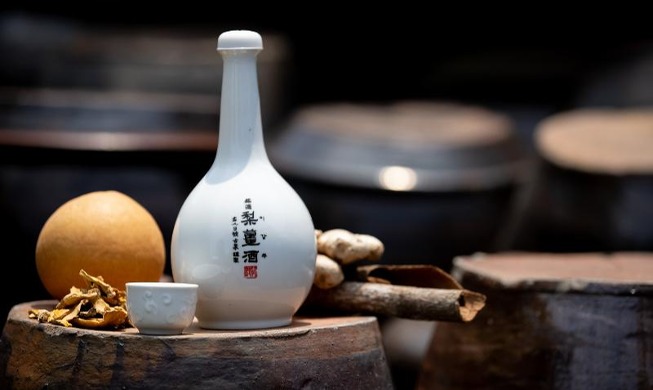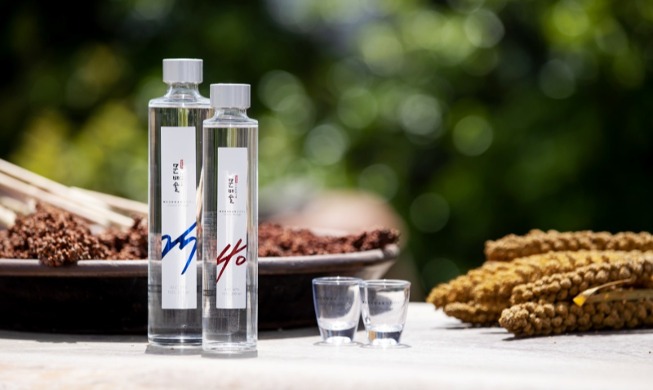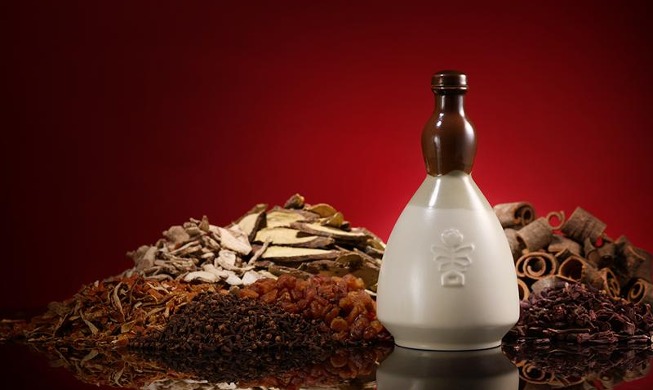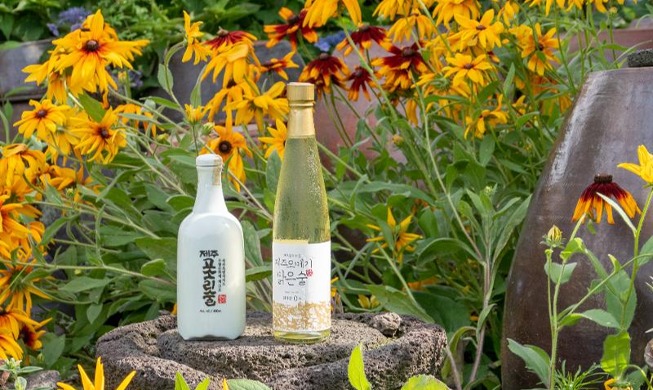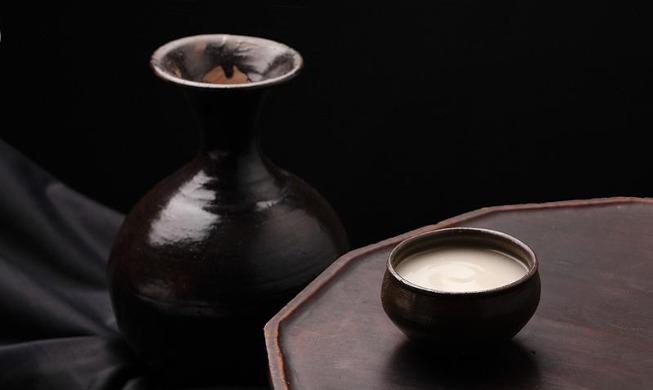
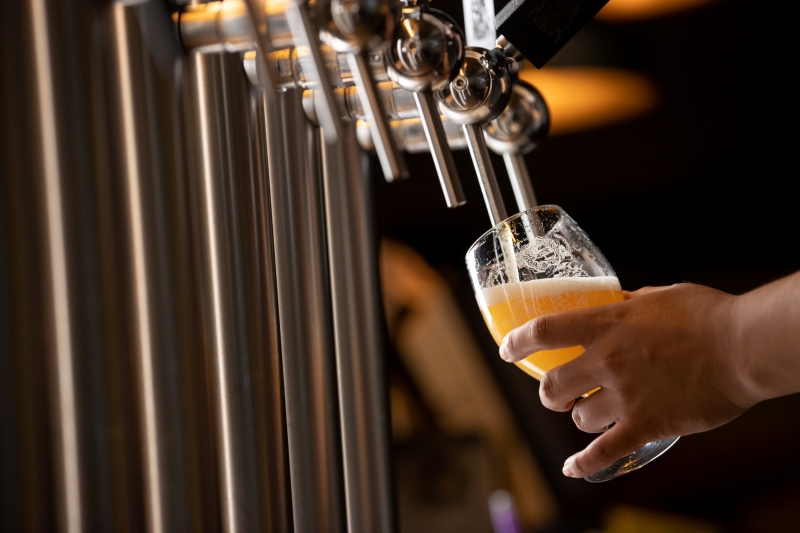
Shown is Budnamu Brewery in the Hongjae-dong neighborhood of Gangneung, Gangwon-do Province.
By Min Yea-Ji and Yoon Hee Young
Photo = Kim Sunjoo
Video = Lee Jun Young
Gangneung, Gangwon-do Province, and Jeju Island
A unique Hanok (traditional Korean building) structure has a high ceiling through which the rafters and a roof on top of another roof can be seen and a cement wall showing its texture. A beer fermenter and oak barrel are visible through the glass window.
This is the scene at Budnamu Brewery, a craft beer brand based in Gangneung, Gangwon-do Province. The company took over a takju (cloudy alcohol) factory set up in 1926 and closed in 2014, restructured the space and opened it in September 2015.
With a unique place where past and present, East and West, and warmth and cold form a contrasting harmony and produce beer available only here, the brewery is widely known through word of mouth as a popular tourist attraction in Gangneung. As of July this year, the cumulative number of visitors was about 460,000, or some 65,000 per year.
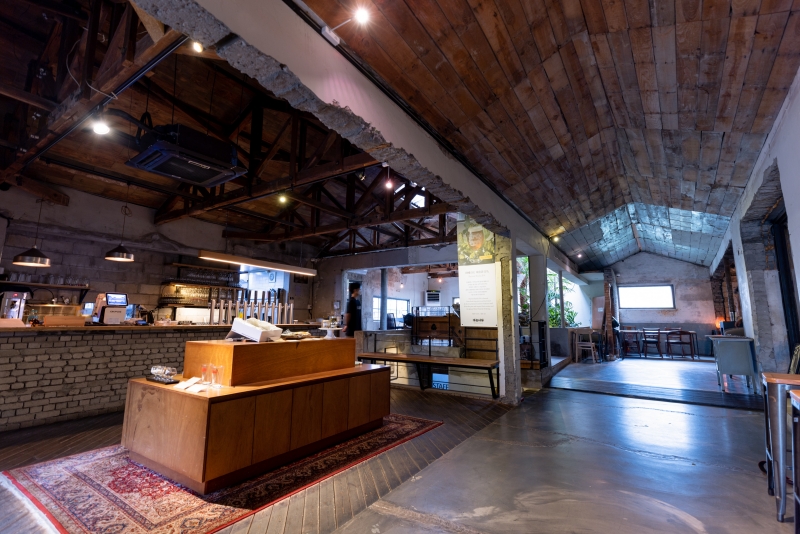
Budnamu Brewery took over a takju (cloudy alcohol) factory that had operated from 1926 to 2014, restructured the space and opened it in September 2015. Traces of brewing makgeolli (milky rice wine) can be seen through the partially raised roof that allows steam from steamed rice to evaporate.
Budnamu's main ingredients are rice, sweet iris, black bamboo, buckwheat, chrysanthemum, prickly ash, pine needles, potato, super sweet corn, persimmon and strawberries supplied by regional farms.
Budnamu CEO Lee Chang-ho said, "We are leading the brewery with a determination to make a regional beer full of Korean-style traits and individuality by utilizing ingredients for traditional Korean liquor and those from our region."
He said the keyword of his brewery is "finding ingredients."
"Now is the season to taste beer made of fresh hops harvested in summer" he said on making beer in fall. The beer uses cultivated hops from Sacheon-myeon Township in Gangneung that were harvested in summer and used to make seasonal beer in fall. The hops give the beer a fresh taste and a grassy smell.
Budnamu is a leading domestic manufacturer of craft beer, a thriving sector in Korea. Craft beer is that made by small breweries, and sujae maekju is the Korean term for craft beer, meaning "to make a high-end product with special care."
"Over 10 years have elapsed since a foreign journalist said Korean beer tastes worse than the North Korean beer Taedonggang. This is outdated," Lee said. "The estimated 150 breweries nationwide are developing and selling more than 2,000 kinds of beer."
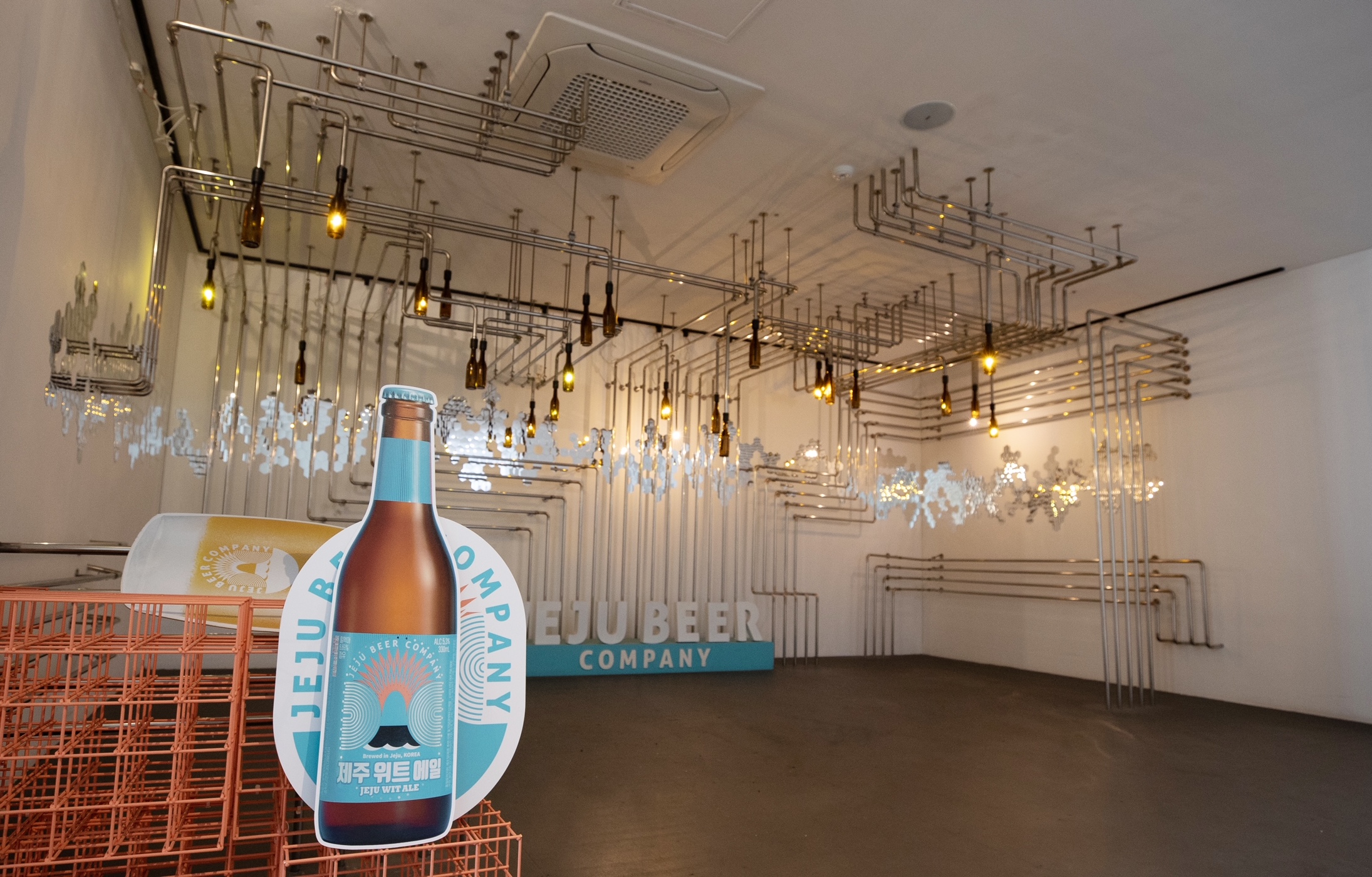
Jeju Beer, which has the highest share of the domestic craft beer market, has an interactive beer center built as a cultural complex in Hallim-eup Township of Jeju City, Jeju Island.
Jeju Beer, which was founded in 2015, leads the booming domestic market for craft beer with a 28.4% share. In May last year, it became the first craft beer company to be listed on the secondary stock market KOSDAQ.
The company's brewery in Hallim-eup Township on Jeju Island has a beer factory on the first floor, a cultural space on the second where visitors can try making beer and a bar on the third for drinking. The second floor features the scent of fermenting wort permeating the space. More than a beer plant, the facility is also a interactive cultural space where visitors can enjoy beer.
Kwon JinJu, chief marketing officer of Jeju Beer, said, "Jeju Beer's goal is to create a new beer culture on the Korean market."
Visitors can visit the brewery and see the principles of beer production in the interactive cultural space built under the concept of a lab while directly sensing the aroma and taste of beer ingredients.
Jeju Beer runs seven to eight tours of the brewery per day, accommodating 12 people in each group and sporting a participatory rate of 97%-98%. As of May this year, the cumulative number of visitors was about 150,000.
Jeju Beer marketer Jeon Bean said, "Jeju Beer tries to contribute to the diversity of Korean beer culture by using a variety of ingredients and jumping into the craft beer market with unique beer."
To that end, the company's focus is on ale, a fresh wheat beer that emphasizes taste and smell, rather than carbonated or refreshing lager that corporations produce. It uses ingredients such as cactus and peanuts from Udo, a small island near Jeju Island, to produce a distinctly regional taste.
Kwon said, "The goal of Jeju Beer is to lead a tasty beer culture."
His company aims to establish drinking and truly enjoying beer as part of culture, similar to savoring wine and carefully pairing it with foods that go well with it.
"When we develop beer, we think of foods that go well with it," he added. "We try to make Korean beer that goes well with Korean food."
"Greasy food from Jeju Island like raw mackerel, steamed pork on a cutting board and meat noodles goes well with Jeju Wit Ale, whose side ingredients are tangerine peels," he said.
"Jeju Pellong Ale goes well with spicy foods such as kimchi jeon (pancake) and golbaengi muchim (moon snail salad). And Jeju Geomeong Ale, which is softer and lighter than regular dark beer, goes well with meat with a rich flavor."
The Korea Craft Brewers Association said the number of craft beer breweries nationwide jumped about three-fold from 54 in 2014 to 163 last year. Sales skyrocketed from KRW 9.3 billion in 2013 to KRW 152 billion last year, growing more than 15-fold in eight years. Sales next year are forecast at KRW 370 billion.
CEO Lee said, "Craft beer brands are expanding their industrial scale through efforts and competition to differentiate themselves from beers made by corporations or imports," adding, "Many more interesting and flavorful Korean craft beers will appear."
jesimin@korea.kr
